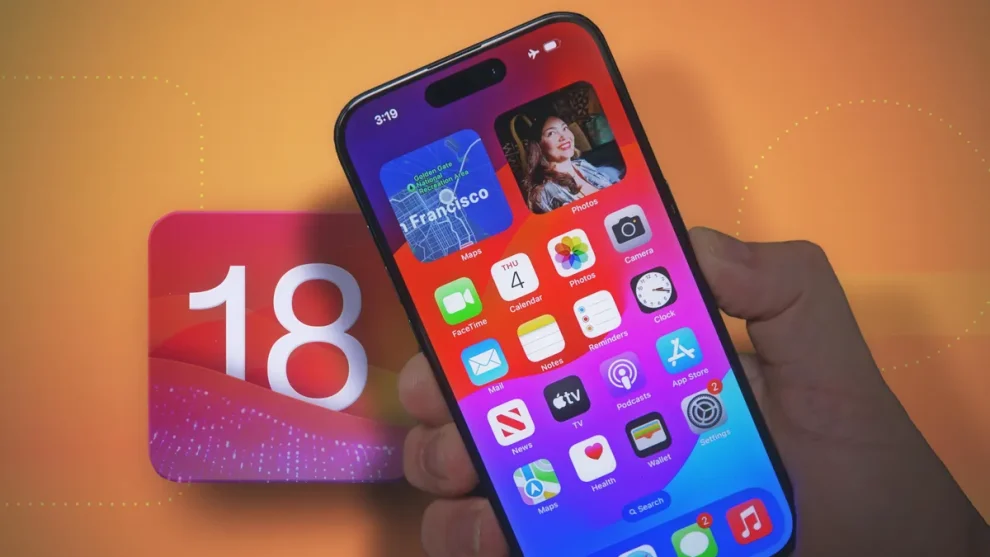Apple’s much-anticipated WWDC keynote unveiled a slew of exciting features for its upcoming iOS 18 update, including a smarter Siri, personalized fitness coaches, and AI-powered music creation. However, amidst the buzz, a crucial detail emerged – not all iPhones will be created equal when it comes to experiencing these groundbreaking AI advancements.
The A17 Bionic Divide: Separating the AI Haves from the Have-Nots
According to reports from Bloomberg and corroborated by analysts, iPhones lacking the A17 Bionic chip – the powerhouse found exclusively in the iPhone 15 Pro and Pro Max – may not be able to fully leverage the on-device capabilities of iOS 18’s AI features.
This news comes as a surprise, considering the iPhone 14 series, released just last year, boasts the A16 Bionic chip, previously considered cutting-edge. However, the demands of on-device AI processing seem to necessitate the significant leap in performance offered by the A17 Pro.
A Tiered AI Experience: What This Means for Users
For users with iPhone 15 and 15 Plus models (equipped with the A16 Bionic), the situation becomes a bit murkier. While they’ll likely receive iOS 18 and experience some level of AI functionality, it’s unclear to what extent these features will be limited. Apple might rely more heavily on cloud processing for these devices, potentially compromising responsiveness and raising privacy concerns for some users.
Future-Proofing with the A18 and Beyond
The future, however, seems firmly rooted in on-device AI processing. Apple’s next iPhone lineup, presumably dubbed the iPhone 16 series, is expected to come equipped with the A18 chip, designed to deliver even more powerful AI performance. This aligns with industry trends, as on-device AI becomes increasingly crucial for tasks like real-time language translation, enhanced camera capabilities, and personalized user experiences.
Beyond iPhones: The Impact on iPads and Macs
The news doesn’t solely impact iPhones. While Apple has yet to officially confirm compatibility requirements, reports suggest that iPads and Macs will require at least the M1 chip to experience the full potential of iOS 18’s AI features. This shouldn’t be a major hurdle for most users, considering the widespread adoption of M-series chips in recent iPad and Mac models.

The Trade-Off: Performance vs. Accessibility
Apple’s decision to prioritize powerful processors for its AI features presents a clear trade-off. On the one hand, it ensures a truly transformative AI experience for users with compatible devices. On the other hand, it potentially leaves a segment of users behind, unable to experience the full potential of iOS 18.
A Multi-Tiered AI Experience: Managing Expectations
Moving forward, we can likely expect a multi-tiered approach to AI on Apple devices. High-end models with the latest A-series or M-series chips will offer a robust on-device AI experience. More affordable or older devices might rely on a combination of on-device processing and cloud-based solutions, potentially resulting in a less seamless or powerful experience.
The Need for Transparency: Clear Communication from Apple
This shift towards tiered AI capabilities necessitates clear communication from Apple. Users deserve a transparent understanding of how their specific device will handle iOS 18’s AI features. Will specific functionalities be entirely absent, or will they be significantly compromised? Transparency will be key in managing user expectations and ensuring a smooth transition to the new era of AI-powered iPhones.
Democratizing AI: The Long Game
While the current approach might leave some users out, it’s important to consider the long game. By prioritizing powerful processors for AI, Apple is investing in the future. As chip technology advances and becomes more affordable, we can expect a gradual democratization of AI capabilities across the entire iPhone lineup.
Choosing the Right Device for the AI Age
For those considering an iPhone upgrade, the focus may no longer be solely on camera specs or screen size. Processing power, particularly the presence of the A17 Bionic chip or its successors, will become a crucial factor for users who want to experience the full potential of iOS 18’s AI revolution.
This shift signifies a significant turning point for Apple, embracing the transformative power of on-device AI while navigating the challenges of delivering a consistent user experience across its diverse product lineup. As the tech giant continues to push the boundaries of what’s possible with AI, it’s clear that the hardware divide will play a pivotal role in shaping the future of mobile experiences.
While some users may feel left behind initially, Apple’s commitment to future-proofing its devices through powerful silicon like the A17 Bionic and M-series chips suggests a long-term vision for democratizing AI capabilities. As the technology matures and becomes more accessible, the divide may eventually fade, allowing all users to bask in the full glory of Apple’s AI revolution.
















Add Comment